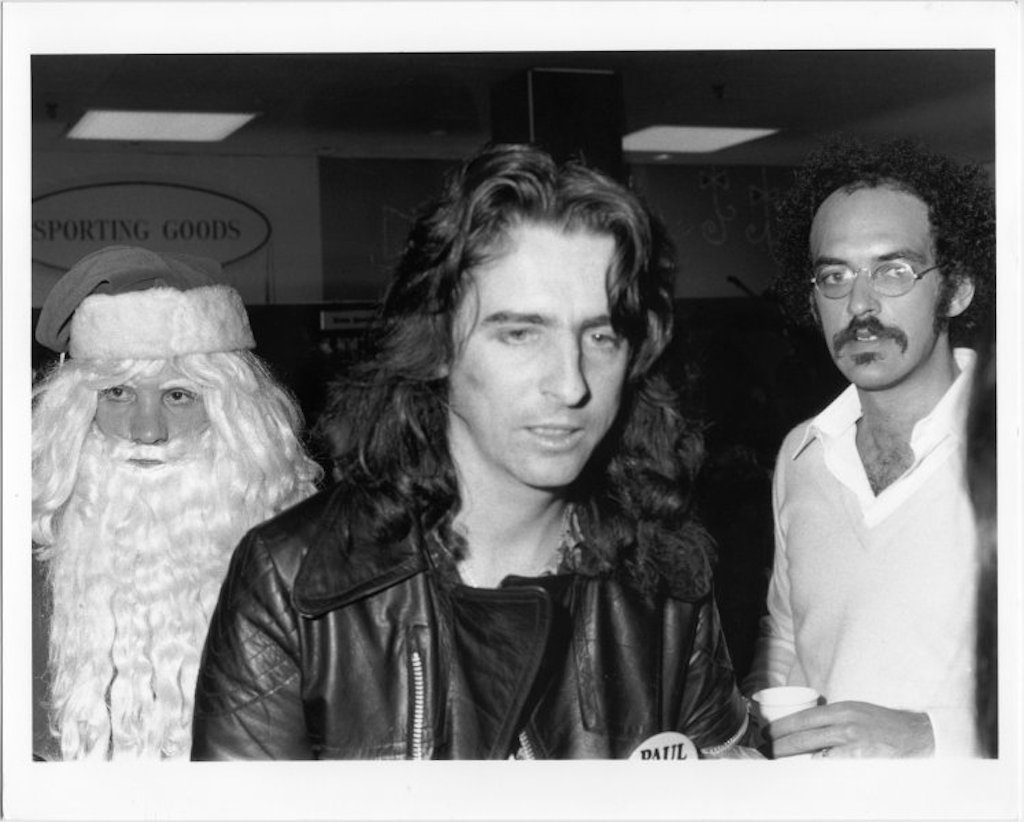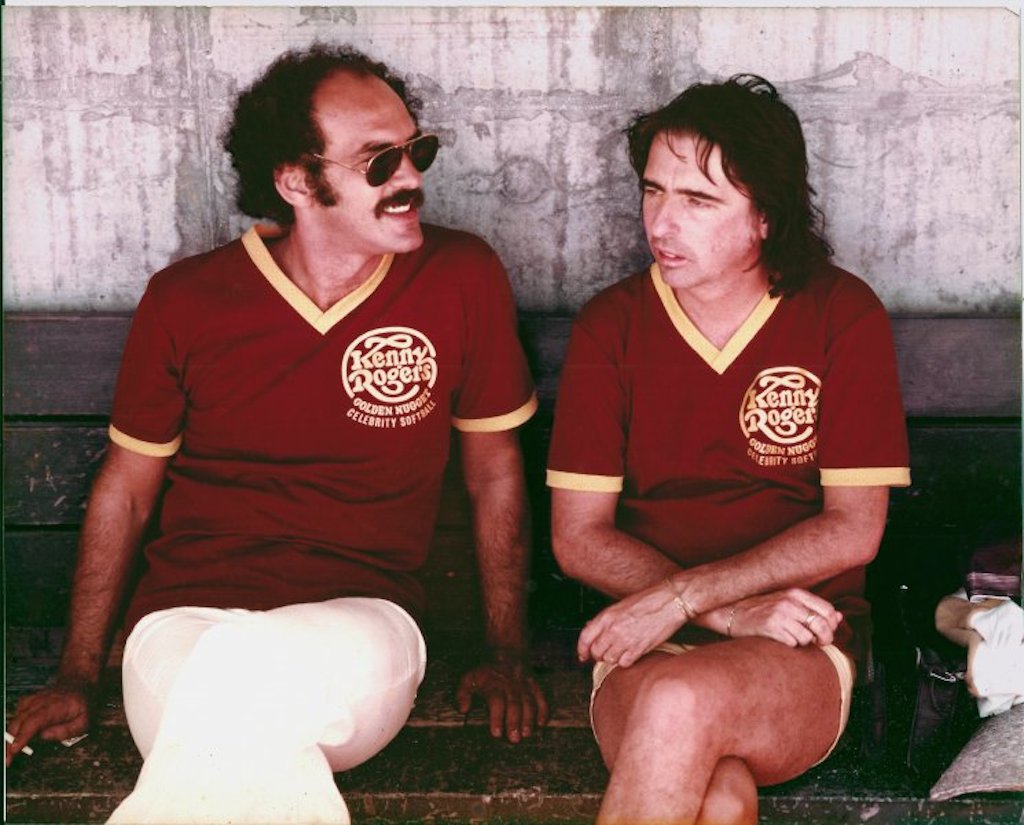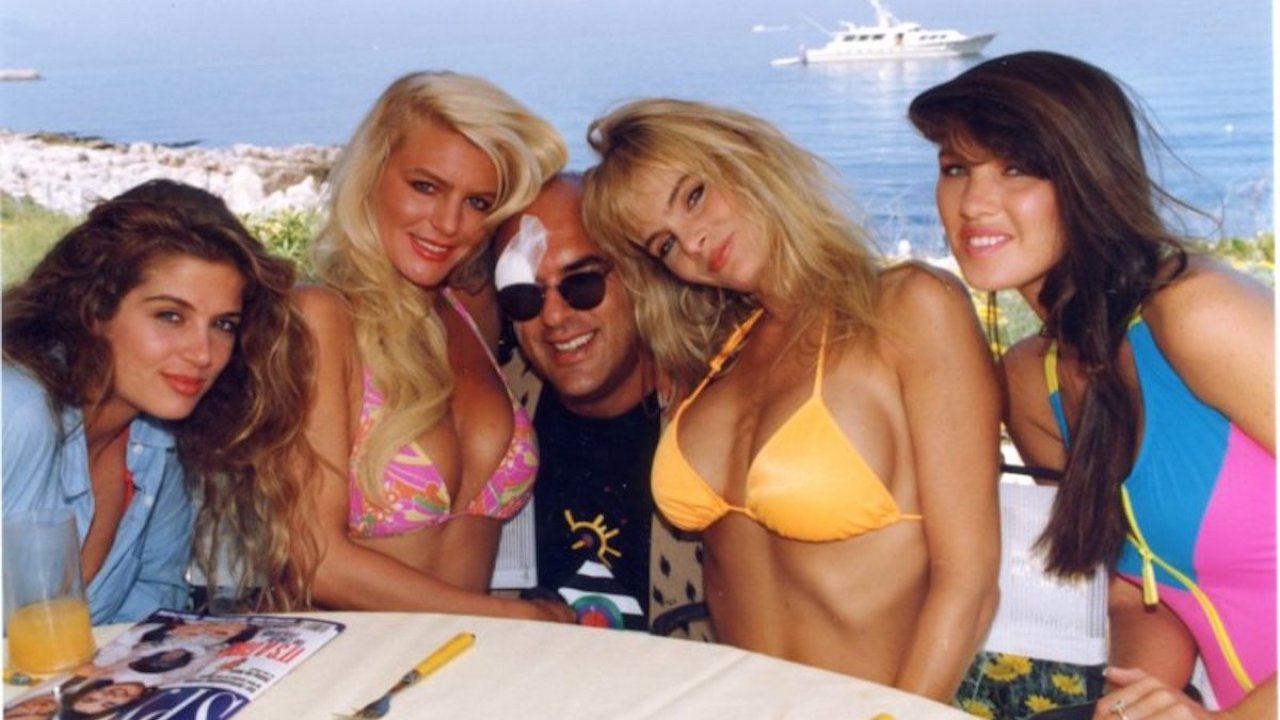Shep Gordon is a music and movie industry legend, a larger-than-life manager who has overseen the careers of Alice Cooper, Blondie, Groucho Marx and more. Now he's the subject of a documentary film - SUPERMENSCH: THE LEGEND OF SHEP GORDON - made by Mike 'Austin Powers/Wayne's World' Myers, which shines the spotlight on his life less ordinary. TeamRock sat down with Gordon to hear all about it...
The story of how you met Alice Cooper is quite something…
“It was a little unusual, yes. I went out to California as a probation officer - which lasted less than one day - and checked into a motel in LA late at night: I could hear a girl screaming, and so I thought some people were fighting, having just come from a jail. I went down and separated them, but they weren’t fighting, they were making love. So they weren’t too happy. I couldn’t see her properly as it was dark out, but in the morning she called me over, and it turned out to be Janis Joplin. She was sitting with Jimi Hendrix and Arthur Lee from Love and the Chamber Brothers a few other people, and I was sort of in the business of selling drugs – I was a hippy child, trying to save the world – so we hung out. After a while Jimi asked me what I did for a living and I said ‘I sell drugs.’ And he said ‘Well, you have to have a legitimate business. Are you Jewish?’ I said ‘Yes’ and he said ‘Well, you should be a manager.’ So then Alice was living in the Chambers Brothers basement and they went to him and said ‘We’ve found a Jewish guy to manage you.’ And that was that.”
Given that you had no experience of this world, what made you think you could be a manager?
“I didn’t. I didn’t really take it seriously. I gave Alice $10 a week and I was pretty honest with him, telling him that I did something else, but then people all around me started getting arrested and I thought ‘Okay, I can’t do this anymore.’ So then we sat down and said ‘Let’s do this seriously.’ And we got lucky.”
Did you recognise star potential in Alice from the start?
“I wouldn’t say that. But the first Alice show I went to, he cleared the house, everybody left, and I thought that was amazing. There’s a difference between a performer and a star, and stars have a real connection with people: admittedly Alice’s connection then was to drive fans away, but I knew that that could be turned into something else. And luckily we’re still here today.”
What was your masterplan?
“I didn’t have one. But when we talked about taking things seriously we looked at all the people who occupied the ground that we wanted and figured out what they had in common, which was that parents hated them, whether it was The Beatles, the Rolling Stones, Bob Dylan, Elvis Presley. I said ‘It seems like all the big acts, parents hate, so let’s get parents to hate you…and then the kids will love you.’ So that’s what we focussed on. But that wouldn’t have worked if the music hadn’t been strong.”
One of your managerial coups was getting Alice to support John Lennon at the Toronto Rock and Roll Revival show, where you booked him for just $1, but got the main support slot…
“Yeah, I knew that was a place that Alice could really shine. It was a peace festival, so that alone made Alice’s inclusion on the bill ridiculous, because the last thing we did was anything peaceful! And on the way there I saw a chicken, and I thought ‘Hmmm, something will happen if I put this chicken onstage’ though I wasn’t sure what. As it turned out, Alice thought it could fly so he threw it out into the audience, and the audience just mangled the chicken, and threw the pieces back at him. So then the next day all the papers said that Alice bit the head off the chicken and drank the blood. And, more than anything else, I’d say that single incident made his career.”
So you did nothing to correct this mis-information?
“Absolutely nothing!”
Bands such as Zeppelin and Sabbath had some crazy fans in those days: presumably Alice did too?
“There were definitely some lunatics around. But not to the point of danger, really.”
What was the most scared you got in Alice’s company?
“Well, the first time we played in Dublin the crowd turned our limousine over after the show: they were so excited that they surrounded the car and flipped it 180 degrees so that we were upside down. That was quite scary. But they meant no harm.”
How did you manage to keep your head amid all the madness of the time?
“I didn’t. You just roll with the punches. There were a lot of women, a lot of drugs, and not a lot of sleep, so you just keep moving. I wouldn’t say I kept my head at all. Those were great times. I remember when we were shooting the album cover for Billion Dollar Babies we brought over a million dollars from America, with armed guards on the plane. I think David Bailey took a shot of us coming through customs at Heathrow with a million dollars and armed guards, and that looked pretty cool, though clearly it was a bit excessive.”

You worked with Pink Floyd for just nine days: what went wrong there?
“I got them a show in Chicago but when they got there the club had burned down and the guy wouldn’t pay them. And that was the end of our relationship. I was surprised they hired me in the first place, I was totally bluffing it at that point. I wasn’t really looking to build a roster, as I was focussed on Alice then, but then I got Anne Murray and Groucho Marx and Raquel Welch and then Blondie and Luther Vandross and Kenny Loggins and the Pointer Sisters…”
How did Groucho Marx come into your orbit?
“He was friendly with Alice and his finances had started to get very low, so Alice asked me to take a look at them. They were good friends and obviously I was thrilled to be involved. I used to tell my clients ‘I won’t make you the most amount of money, there’s other people who’ll make you more money, but you probably won’t ever have to tell anybody your second name.’ No-one says ‘Alice who?‘”
What was the most decadent evening of your career?
“Almost every night of the ‘70s was decadent. By the ‘80s there were consequences to our lifestyle but in the ‘70s it was all about free love and partying: there was no AIDS and no-one had really died yet from drug overdoses. You could go as far out as you wanted.”
Alice had his own problems with drugs and alcohol though…
“Yes he did, later, and I checked him in to rehab. Which worked for the alcohol addiction, but not so well with the drugs. He needed to take a real fall with drugs in order to give them up. I didn’t deal with him a lot during that period. I didn’t want to be working hard in order to make him money to kill himself. I let my office take care of him then, but we had an open and honest conversation about it and we remained friends. And when he hit the bottom he called me and said that he was ready to climb back up.”

You’ve made your money and made a huge mark upon the industry, so what keeps driving you on now?
“I just love working with Alice. That’s still a work-in-progress. That’s all I really do now, but I really enjoy it. He’s a true artist.”
I read somewhere that the one person who turned you down for management was the chef Jamie Oliver: what happened there?
“Well, I was managing a collection of chefs in America and in Europe and I felt that they were becoming celebrities, but that their food was being experienced only by the elite, and I didn’t think that the art form would survive unless all stratas of society had a chance to experience it. And Jamie Oliver seemed to me to be the one guy doing that. He was doing that TV show with the kids working in his restaurant and so I got Alice to come with me to the opening night of the restaurant to help influence him to join us, but it didn’t work. And he’s done very, very well without me, so he probably made the right choice.”
What’s the biggest lesson you’ve learned in life?
“That nothing replaces hard work. And that every one of those things that your parents told you when you were growing up has some validity to it. But hard work is key. Hard work makes you appear lucky and smart and that’s never a bad thing.”
**SUPERMENSCH: THE LEGEND OF SHEP GORDON is in cinemas now. Check out our review of the film here. And see www.supermenschthemovie.com for more details. **

